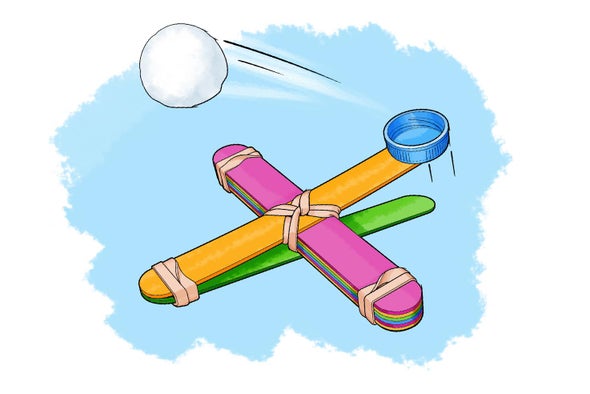 |
| April 08, 2022 |
 |
| |
| |
| |
| Sponsor Content Provided by Macmillan Audio Listen to the WIRED FOR LOVE audiobook From the world's foremost neuroscientist of romantic love comes a personal story of connection and heartbreak that brings new understanding to an old truth: better to have loved and lost than never to have loved at all. | | | | |
| |
| |
| |
| |
| |
| |
| |
| |
| |
FROM THE STORE
 | | | |
| |
BRING SCIENCE HOME
 | | Build a Catapult |  Ready, aim, fire! Learn about physics as you build and modify your own catapult--and launch cotton balls through the air! How far can you make your soft missiles soar? Credit: George Retseck | Catapults were mighty handy for pirates in the golden age of piracy (during the 17th century). And medieval knights used them centuries earlier for taking down massive castle walls. Even Greeks and Romans used catapults about 2,000 years ago! These simple machines are quite handy, as long as you know how to aim them! In this science activity you will try your hand at catapult technology. Can you predict where your missile will land? | |  | |
LATEST ISSUES
 |
| |
| Questions? Comments?  | |
| Download the Scientific American App |
| |
| |




